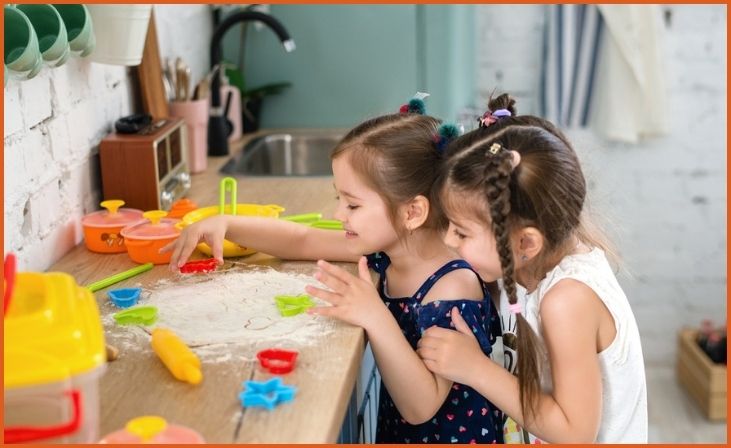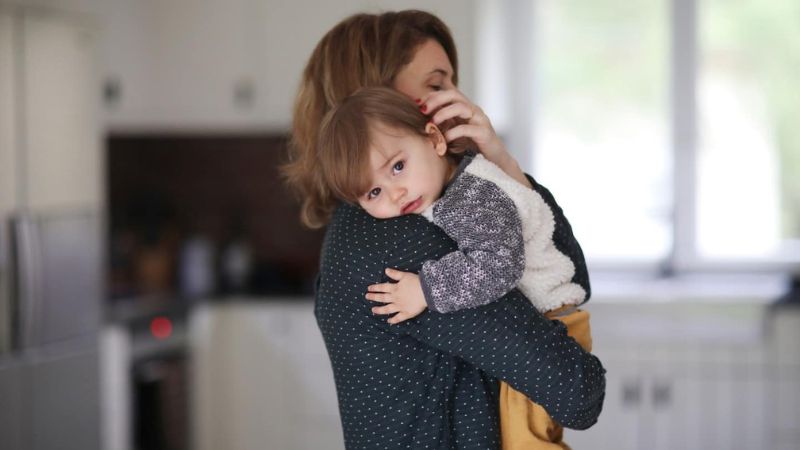Parenting styles have evolved significantly over the years, leading to a range of new practices and philosophies that often leave grandparents scratching their heads. What might have seemed conventional and straightforward in the past now appears to be replaced with a host of modern trends and technologies. This article explores nine ways new parenting styles can confound grandparents and provides insights into how they can bridge the gap between traditional and contemporary approaches.
1. Tech-Savvy Parenting

Embracing Technology in Childcare
Modern parents frequently integrate technology into their parenting routines. From monitoring apps that track a child’s health to gadgets that help with daily activities, technology plays a substantial role in contemporary child-rearing.
Popular Parenting Apps and Gadgets
Some popular tools include baby monitors with video feeds, health tracking apps, and educational apps designed for toddlers. These innovations can streamline parenting tasks and provide valuable data on a child’s development.
Grandparents’ Perspective on Tech
Grandparents, who may not have grown up with these technologies, might find it challenging to understand why tech is so integral to parenting today. They might view it as unnecessary or even intrusive, not realizing the benefits it can provide in modern parenting.
2. Attachment Parenting Trends
Principles of Attachment Parenting
Attachment parenting emphasizes forming strong, emotional bonds with children through practices like close physical contact and responsive caregiving. The idea is to foster secure attachments and trust between parent and child.
Common Practices: Co-Sleeping and Baby-Wearing
Common attachment parenting practices include co-sleeping, where parents and children share a bed, and baby-wearing, where babies are carried in slings or carriers. These practices are intended to provide comfort and closeness.
Grandparents’ Reactions to Attachment Parenting
Grandparents might be perplexed by these practices, especially if they were raised with more independent parenting styles. They may question the necessity of co-sleeping or carrying babies in carriers, seeing them as indulgent or unnecessary.
3. Flexible Routines
Structured vs. Flexible Schedules
Unlike previous generations who often adhered to strict schedules for feeding and sleeping, modern parents may adopt a more flexible approach. This can include varying bedtimes and mealtimes based on the child’s needs and family circumstances.
How Flexibility Affects Daily Life
Flexible routines can adapt to the child’s changing needs and family activities. While this can make daily life more adaptable, it might also lead to a lack of consistency that some may view as disruptive.
Grandparents’ Adjustment to Flexibility
Grandparents accustomed to rigid schedules might find it challenging to accept this fluid approach. They might worry about the child’s stability or question the efficacy of such flexibility in establishing good habits.
4. Organic and Natural Choices
Rise of Organic Foods and Eco-Friendly Products
Today’s parents often choose organic foods and eco-friendly products, reflecting a commitment to health and environmental sustainability. This includes selecting natural baby care products and avoiding harmful chemicals.
Natural Parenting Methods
Natural parenting methods also extend to practices like cloth diapering and breastfeeding. The focus is on minimizing environmental impact and promoting health through natural choices.
Grandparents’ Views on Organic Choices
Grandparents might find these choices perplexing, especially if they were raised with more conventional products. They might question the cost or necessity of organic items, not fully appreciating the modern emphasis on health and environmental concerns.
5. Non-Traditional Gender Roles

Evolving Gender Roles in Parenting
Modern parenting increasingly embraces non-traditional gender roles. This means both parents may share equally in all aspects of childcare, and children are encouraged to explore and express their identities freely.
Encouraging Exploration of Identities
Parents today are more likely to support their children in exploring various aspects of their identities, including gender and personal interests, without adhering to traditional norms.
Grandparents’ Responses to Non-Traditional Roles
For grandparents accustomed to more defined gender roles, this shift can be confusing. They might struggle to understand the new dynamics and may need to adjust their perspectives on gender and parenting.
6. Inclusive Parenting Practices
Adopting Inclusive Practices
Inclusive parenting aims to expose children to diverse cultures, experiences, and perspectives from an early age. This approach fosters empathy and understanding in children.
Exposure to Diverse Cultures and Experiences
Parents may engage in activities that highlight different cultures, traditions, and viewpoints, ensuring their child grows up with a broad understanding of the world.
Grandparents’ Take on Inclusivity
Grandparents may find these inclusive practices unfamiliar or even challenging, particularly if they come from more homogeneous backgrounds. They might need to embrace new ways of thinking to fully support their grandchildren’s diverse experiences.
7. Emphasis on Emotional Intelligence
Focusing on Emotional Intelligence
Modern parenting places a strong emphasis on developing a child’s emotional intelligence. This includes recognizing and validating feelings, promoting open communication, and teaching empathy.
Validation of Feelings and Open Communication
Parents encourage children to express their emotions and discuss their feelings openly, which contrasts with older parenting styles that prioritized obedience and discipline.
Grandparents’ Views on Emotional Intelligence
Grandparents who were raised with a focus on discipline might find this new emphasis on emotional intelligence surprising. They may need to understand the benefits of validating emotions and open dialogue in nurturing a child’s well-being.
8. Holistic Health Approaches
Alternative Medicine and Mindfulness
Many modern parents turn to holistic health practices, such as alternative medicine, mindfulness, and yoga. These approaches aim to promote overall well-being and balance in children’s lives.
Yoga and Other Holistic Practices
Practices like yoga and meditation are becoming increasingly popular among families seeking to integrate physical and mental wellness into their daily routines.
Grandparents’ Reactions to Holistic Health
Grandparents might be skeptical about these holistic approaches, especially if they were raised with conventional medical practices. They may need to explore the benefits of these methods to better understand their role in modern parenting.
9. Parental Roles and Responsibilities

Shared Parenting Responsibilities
Contemporary parenting often involves shared responsibilities between both parents, with both partners actively participating in childcare and household duties.
Active Involvement of Both Parents
This contrasts with traditional roles where one parent, typically the mother, was primarily responsible for childcare. Today’s parents strive for a more balanced approach.
Grandparents’ Perspective on Modern Parental Roles
Grandparents may find this shift in parental roles unfamiliar or challenging, particularly if they grew up with more defined roles. They might need to adjust their expectations and appreciate the benefits of shared responsibilities.



